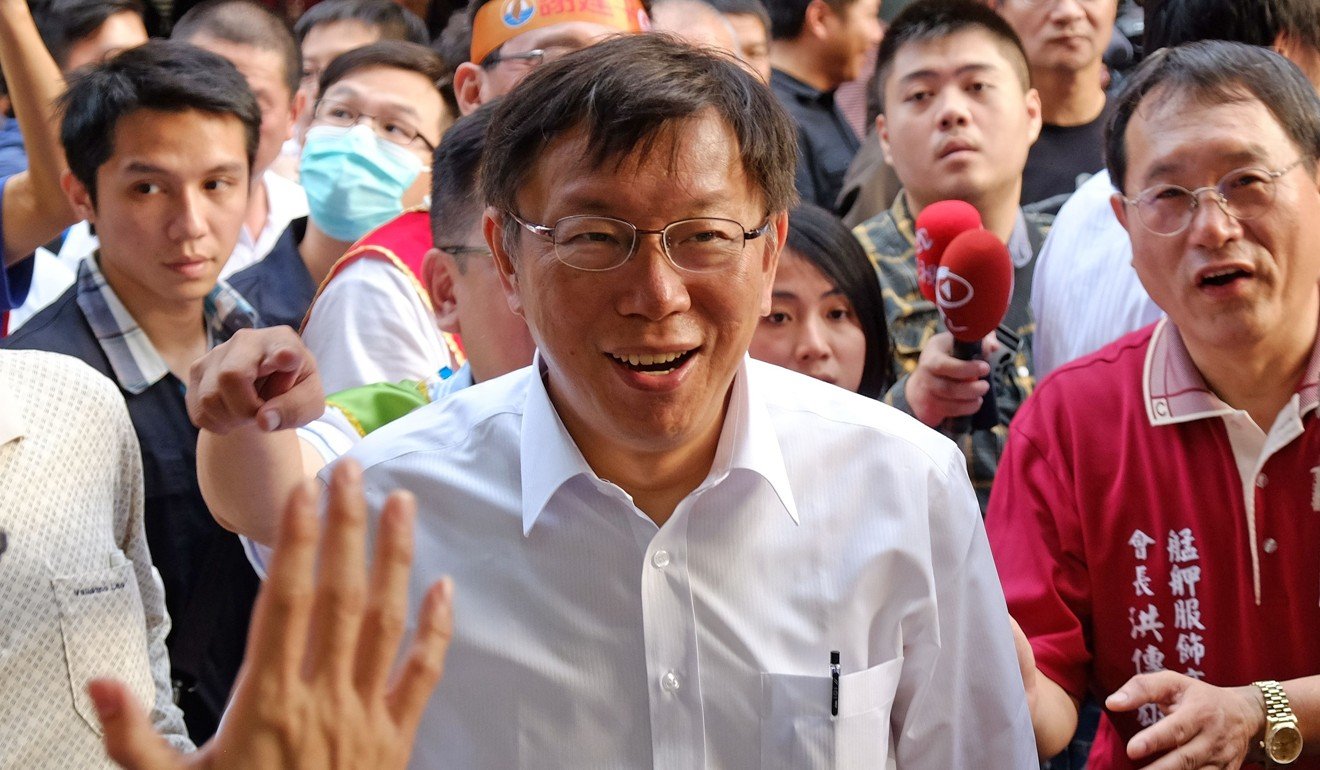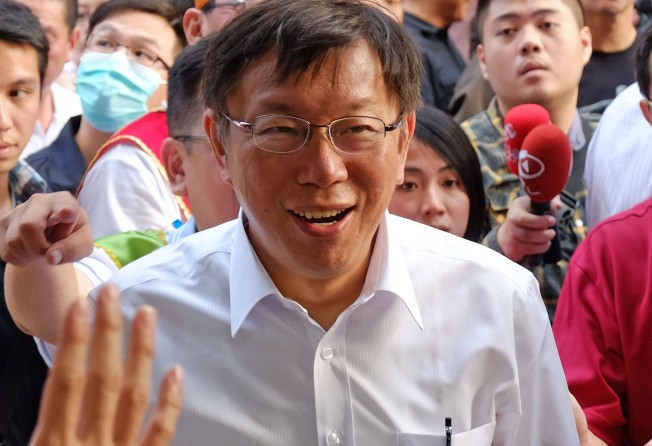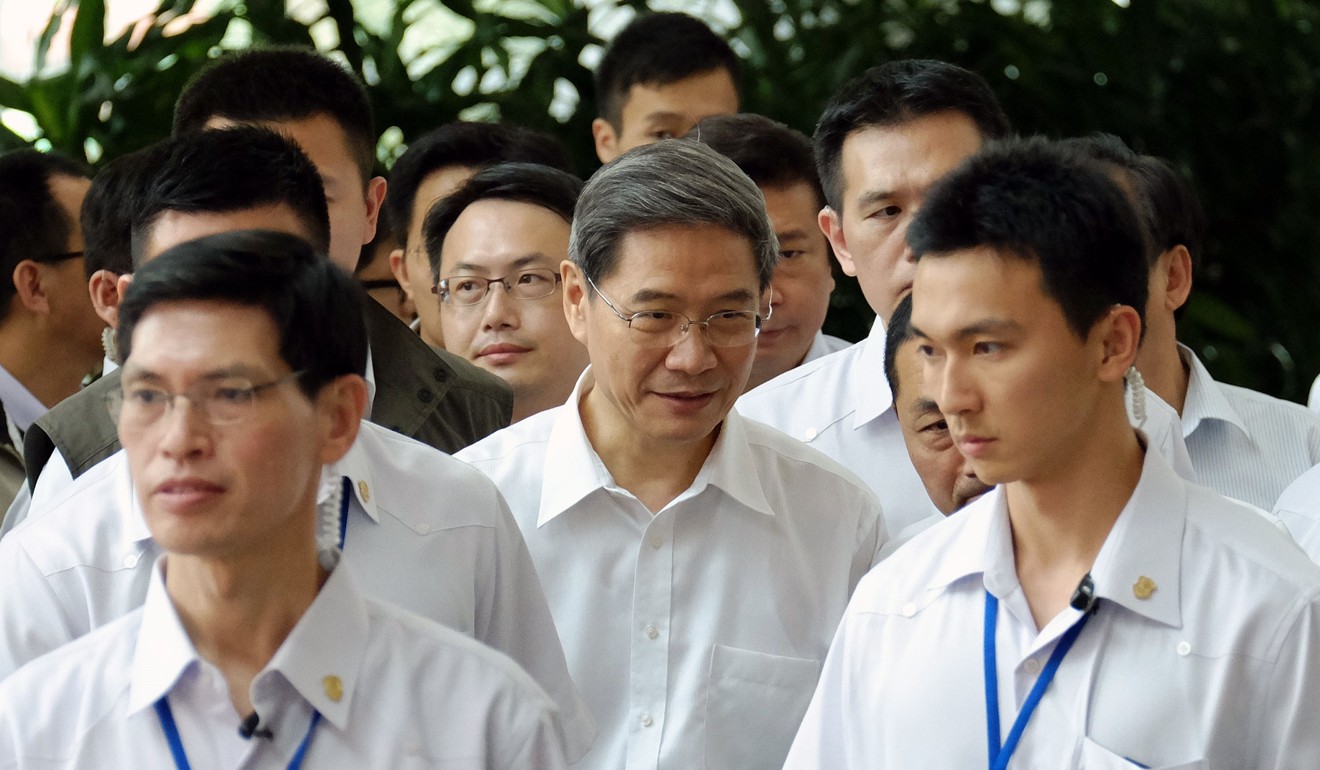
Beijing warms up to Taipei’s mayor
Mainland’s top Taiwan affairs official tells visiting Ko Wen-je that anyone who respects the 1992 consensus can be part of a better cross-strait relationship

The mainland’s top official for Taiwanese affairs, Zhang Zhijun, on Monday told visiting Taipei Mayor Ko Wen-je that Beijing was willing to reach out to any party in Taiwan as long as they had the right attitude towards cross-strait relations.
Specifically, Zhang said exchanges could only be conducted with those who accepted the 1992 consensus – an understanding that there is only one China but that each side can interpret what “China” means.
Zhang made the comment during his first meeting with Ko, who ran for mayor as an independent, as he wrapped up a three-day visit to Shanghai, where he attended an annual forum involving Taipei and Shanghai. The meeting was one of the highest-level exchanges between the two sides amid their current strained relations, and was seen by analysts as a bid by Beijing to break the current cross-strait deadlock.
In response, Ko asked Zhang to respect the different voices within Taiwan, according to the island’s Central News Agency.
The mainland was trying to engage heads of Taiwan’s local governments in a bid to increase pressure on the island’s president, Tsai Ing-wen, of the independence-leaning Democratic Progressive Party (DPP), analysts said. Beijing has suspended talks and exchanges with Taipei since a month after Tsai took office in May last year and then refused to accept the 1992 consensus or the one-China principle.

Since last year, Beijing has also put the squeeze on Taipei through international channels.
Some of the island’s former diplomatic allies have switched recognition to Beijing and some of its overseas trade offices have been forced to change titles or close because of pressure from the mainland side.
The meeting was also the first high-level exchange in many months between a senior mainland official and a Taiwanese local government head who has identified himself as “deep green” – a member of the hardcore pro-independence camp in Taiwan.
“Ko’s comments on cross-strait issues show that he has the intention of helping to overcome the current predicament between the two sides, and avert the rocky situation [we saw] when Chen Shui-bian and Lee Teng-hui were president,” said Ni Yongjie, deputy director of the Shanghai Institute of Taiwan Studies.
In his address at the forum, which opened on Sunday, Ko said he believed that the current stalemate could be overcome to some extent, based on the concept that both sides belonged to one family.
“If we work to put the welfare of the people as our goal, based on the concept that both sides belong to one family, increase exchanges and cooperation between the two sides so as to construct a cross-strait community of a common destiny and to pursue a better future for the people of both sides, then the deadlock we are facing at the moment can be broken,” he was quoted as saying by Taiwan’s Central News Agency.

Ni said the mainland had found those words acceptable, and hoped that they could serve to test the reaction of the general Taiwanese public.
Analysts said Ko could become a “third-track” official for Beijing to deal with alongside those from the island’s traditional political camps, associated with the DPP and the mainland-friendly Kuomintang.
Others said that through engaging Ko, Beijing hoped more local government heads from the deep green camp would want to engage with the mainland, ultimately creating a situation where local governments put pressure on Taipei for changes.
“Engagement with officials like Ko could help create new momentum in Taiwan to promote cross-strait relations,” said Liu Guoshen, the director of Xiamen University’s Taiwan Research Institute.